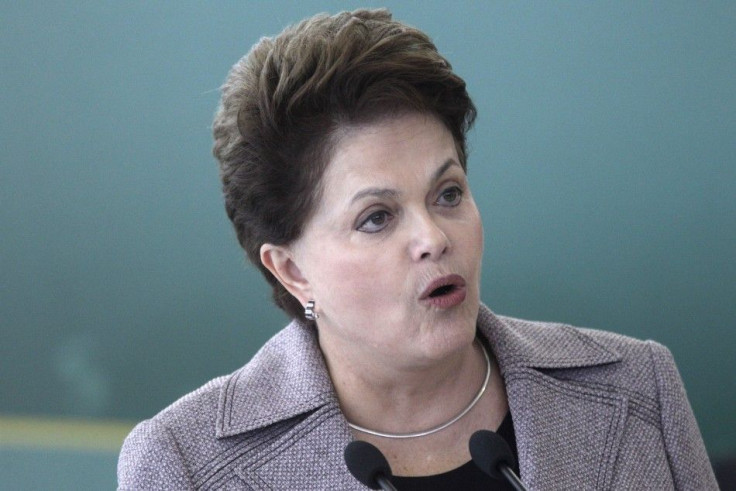Brazil To Charge Former Army Officer For Crimes Committed During Military Dictatorship

Brazilian authorities will charge a former army officer with a series of crimes and rights abuses perpetrated during the military dictatorship that ruled the country from 1964 to 1985.
This will be Brazil's first such case stemmig from the junta that took power almost 50 years ago.
Under the new directive, prosecutors will charge former colonel Sebastião Curió Rodrigues de Moura with the kidnapping and torture of five Communist guerrillas – three men and two women -- in the northern state of Para in the 1970s. The five leftists’ bodies have never been found.
The violent conduct of kidnapping, assaulting and executing opponents of the military government regime, though carried out under the pretext they constituted measures to re-establish national peace, consisted of thoroughly criminal acts, violating human rights and legal order, the prosecutors in Brasilia said in a statement.
Thousands of people were arrested, killed, tortured or simply disappeared under the military rulers’ brutal crackdown on dissent in South America's largest country over two decades.
Human Rights Watch estimates that more than 475 people were “forcibly disappeared” during the dictatorship, and “thousands more were illegally detained or tortured.”
But it is unclear how far the prosecution of de Moura (and potentially other military figures who committed crimes) can go since Brazil enforced an amnesty in 1979 that shielded army officers from facing trial for rights abuses committed between 1961 and 1979.
Military officials oppose the prosecution of de Moura, calling it an effort to circumvent the amnesty law.
In de Moura's case, prosecutors say the amnesty law does not apply since his alleged victims’ remain missing.
HRW applauded the Brazilian government’s decision to prosecute.
This is tremendous news for the families who lost loved ones in the brutal repression that followed the 1964 military coup, Jose Miguel Vivanco, executive director of HRW's Americas division, said in a statement.
HRW asserted that the amnesty should not prevent Brazilian authorities from bringing to justice other former military figures who committed grave abuses.
“Under international humanitarian law, enforced disappearances are absolutely prohibited and can never be justified, whether as part of an armed conflict or any law enforcement operation,” HRW stated.
“They may also constitute war crimes or crimes against humanity. As a party to the International Convention for the Protection of All Persons from Enforced Disappearance, ratified by Brazil in November 2010, Brazil has specific obligations to ensure that, whenever an offense occurs, there is effective investigation and prosecution, and a proper remedy for the victim.”
De Moura, who is now 77 years old and served as a federal congressman, could face up to 40 years in prison, if convicted.
Other Latin American nations, including Guatemala and Argentina, have already investigated their countries’ dark military past.
The current president of Brazil, Dilma Rousseff, was herself a former left-wing guerrilla who was abused by the military and spent three years in prison.
© Copyright IBTimes 2025. All rights reserved.





















